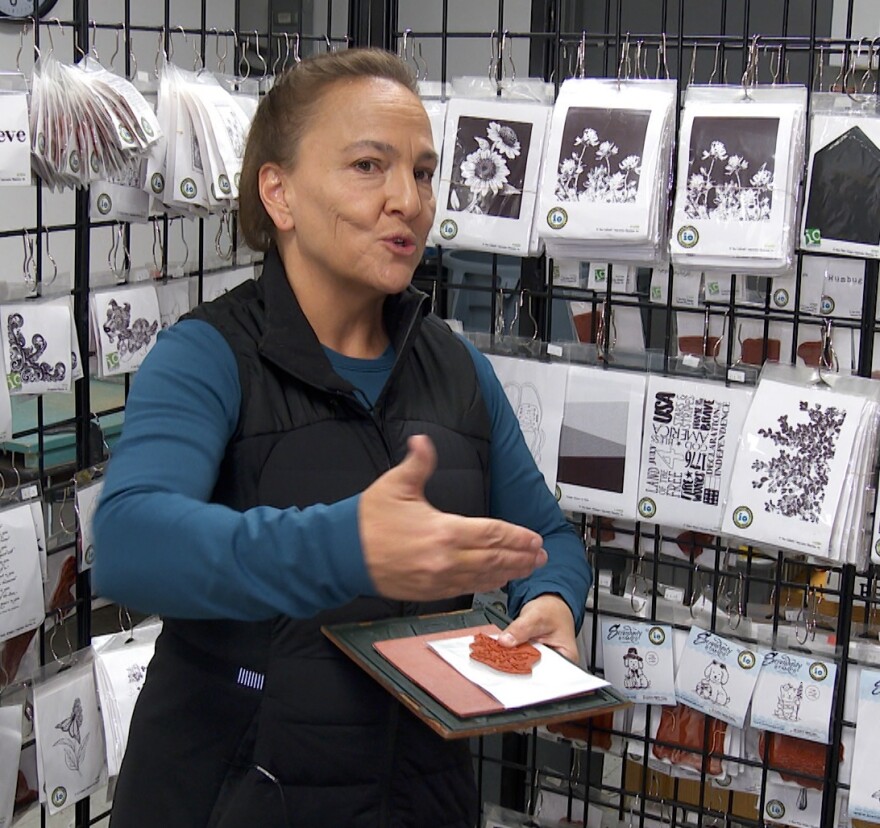After about 25 years of creativity, Mitra Palmer is stepping away from an artistic rubber stamp business that she started from scratch while teaching high school in Williamsburg.
“I founded this business in a super naive way,” she said. During the late ’90s, “there was no direct-to-consumer sales on the internet.”
Using a rubber-setting machine called a “vulcanizer,” Palmer began creating rubber stamps needed for crafting projects — like homemade greeting cards, posters and invitations.
She and a partner mailed about 1,800 catalogs for her Impression Obsession business to stores nationwide, quickly gaining traction as stamp producers (Palmer bought out the partner after about a year). By the 2000s, Impression Obsession produced around $3 million of stamps per year and employed 10 people.
“It’s a very tedious process, not very high-tech,” she told VPM News in an interview at her Oilville shop, gesturing to the metal vulcanizer machine. “It’s been done the same way for years and years.”

But those years have taken a toll. The pandemic’s economic impact made it difficult for Palmer to hire and retain employees. She decided that this past Christmas season would be her last.
“This year, I realized I had to draw on my line of credit for the first time ever because things were just tough,” she said.
Palmer also had to deal with another issue: online copycat vendors that hawk their wares on a growing number of websites. Palmer pointed out that the sites can quickly and cheaply copy designs, make them in a factory and sell those designs at a fraction of the cost in the United States.
“It’s pretty common to have businesses see their products, or spoofs of their products, end up on Chinese websites,” said Jim Gibson, a University of Richmond law professor specializing in intellectual property. “Most websites of any heft would have what is known as a notice and takedown procedure.”
Whether those procedures are scrupulously followed is another matter, and Palmer points out similar products pop up in several online sites the moment her catalogs go up.
Dotan Oliar, an IP expert at the University of Virginia’s law school, also pointed out that while there's legal recourse for small operators like Palmer, finances can be a limiting factor.
“I don’t know how much money’s involved, but it gets pretty costly pretty fast,” he said.
Meanwhile, as Palmer packed up her Goochland County storage unit where Impression Obsession was located, she reflected on visiting trade shows across the States and seeing colorful craft projects that often rose to the level of high art.
She points out that the actual physical process of making the stamps — cutting rubber, repeatedly pulling the metal lever of the vulcanizer to set the rubber and packaging them — is something she didn’t have to do for years.
That changed recently, causing her to consider retirement.
“I always said, if we go full circle and it’s time for me to start making stamps again — because I haven’t been physically involved — then it’s time,” she said. “Because I’m 58.”











